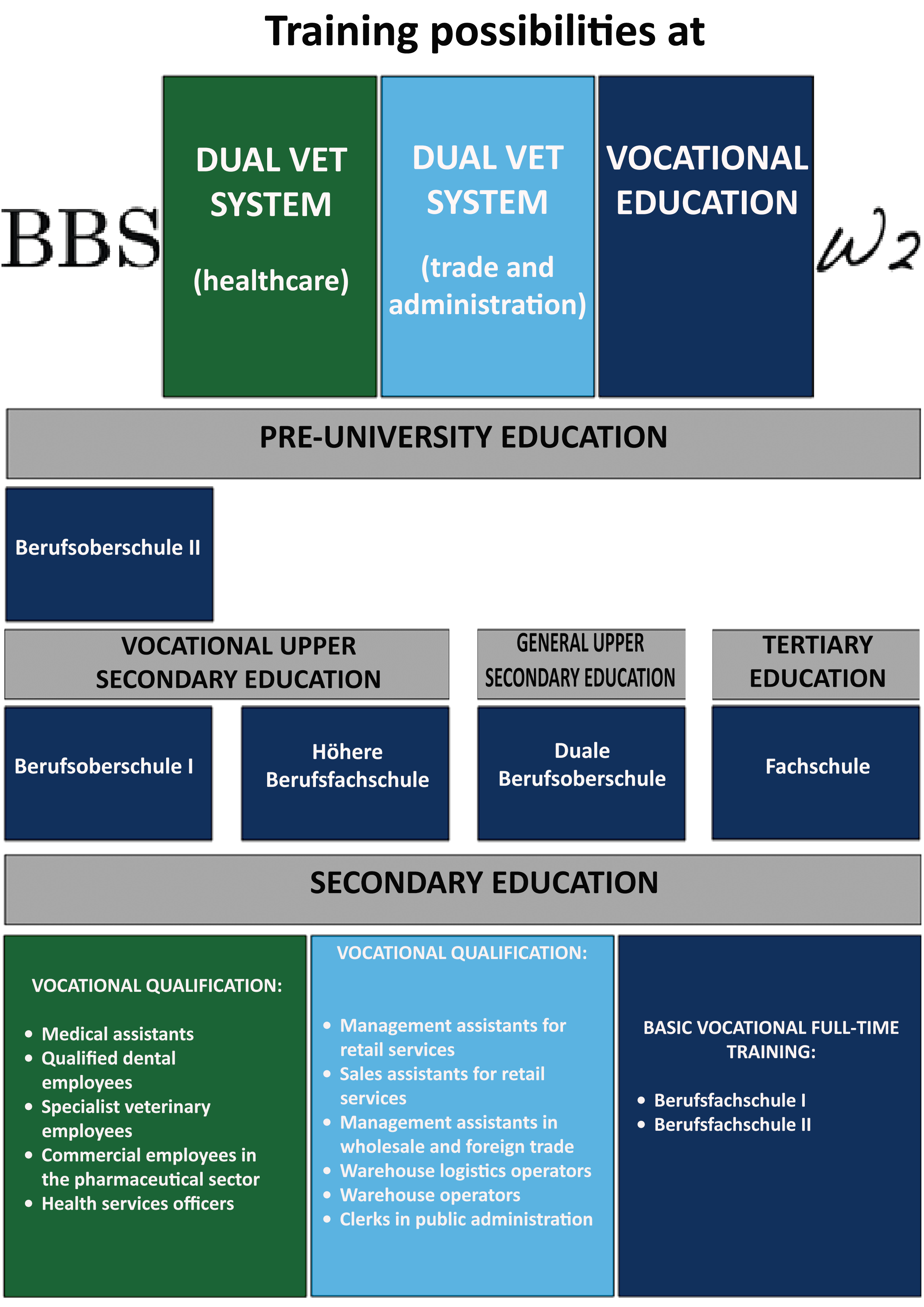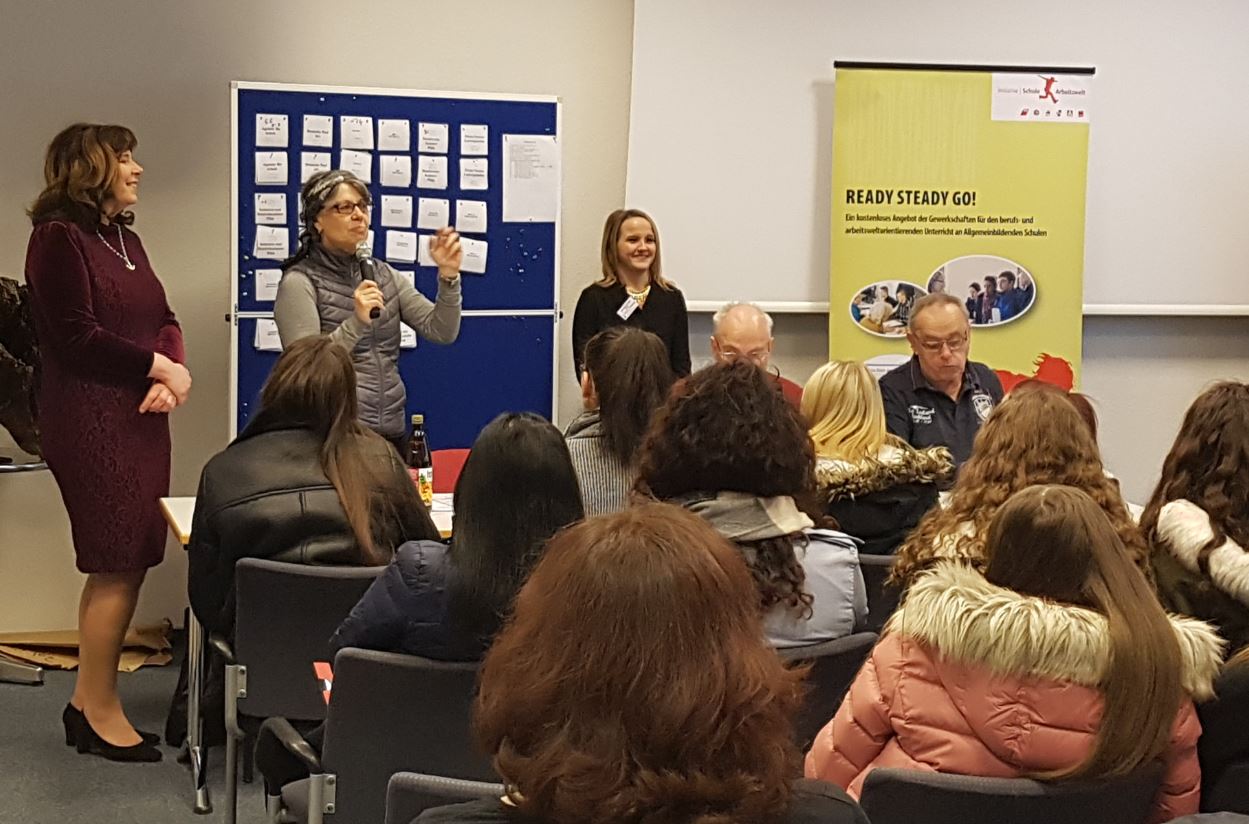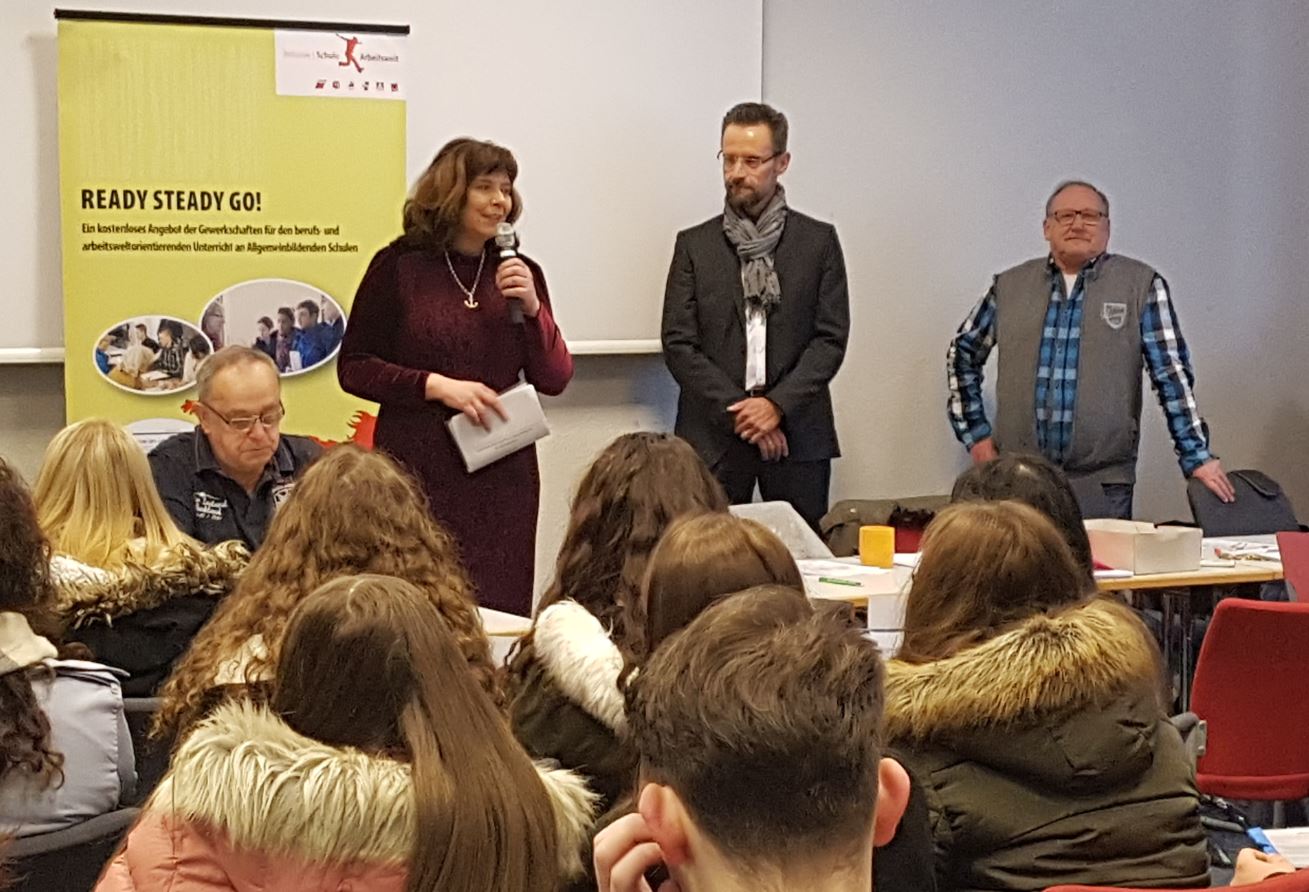- Read Time: 3 mins

Annotations:
Vocational qualification (German DUAL VET system):
After having completed lower secondary education (minimum entrance qualification) students apply for apprenticeships at companies directly and conclude training contracts. Students learn all the practical aspects of a certain profession at the training company under the supervision of trainers. Besides work-based learning apprentices also attend a vocational school (1 to 2 days per week or block instruction) in order to learn the theoretical aspects. The school curriculum is predominantly tailored to this training occupation but also consists of general subjects like German, Social Studies and English. After 2 to 3 years students take their final examination before the chamber that is responsible for their occupational group. For example, the Chamber of Industry and Commerce here in Ludwigshafen monitors a proper execution of apprenticeships and organises the final examinations of professions in the trade and administration sector.
A successful graduation in one of these professions is equal to the European Qualifications Framework (EQF) level 3-4. Graduates have gained expert knowledge in the respective area and are able to accomplish and solve daily occupational-related tasks.
Berufsfachschule I + II:
The Berufsfachschule is a full-time vocational course that introduces students to occupations in business and administration. It aims at students with a lower secondary education qualification. Besides basic occupational aspects general subjects are taught as well. Berufsfachschule I prepares for elementary professional competences in one year (EQF level 2) whereas Berufsfachschule II leads to an intermediate school-leaving qualification after another year. A graduation corresponds with EQF level 3 and students can apply at a Höhere Berufsfachschule or begin an apprenticeship in the dual vocational system.
Höhere Berufsfachschule:
The Höhere Berufsfachschule is a 2-year full-time upper secondary vocational course and requires an intermediate school-leaving qualification. Students acquire general as well as factual and theoretical knowledge in different vocational areas. Here at Berufsbildende Schule Wirtschaft II we offer courses in business administration as well as police services and administration. During the course students are also supposed to do a work placement in order to gain practical knowledge. At the end of the course students are able to provide self-regulated solutions in the respective business environment autonomously. A successful graduation leads to a state-recognised vocational degree as well as a higher education entrance qualification (EQF level 4). Students either do an apprenticeship or continue learning at universities of applied sciences.
Berufsoberschule I + II:
The Berufsoberschule aims at students who have already complemented vocational training in the dual VET system. Besides general subjects, the courses also focus on business and administration and lead to a higher education entrance qualification at the end of the first year (Berufsoberschule I) or a university entrance qualification at the end of the second year
(Berufsoberschule II). The graduation corresponds with EQF level 4 and usually students continue their professional career at universities.
Duale Berufsoberschule:
The Duale Berufsoberschule is a part-time course for students who have already accomplished traditional training. This course is especially attractive for students who are employed but can broaden and strengthen their general competences in Maths, English, Biology and German three times a week in the evenings. After 2 years they get access to a higher education entrance qualification (EQF level 4) and can continue learning at universities of applied sciences.
Fachschule für Betriebswirtschaft und Unternehmensmanagement:
The Fachschule caters for continuing vocational education. Applicants have completed training in the dual VET system and are already employed. Students attend vocational school three times a week in the evenings. Here at Berufsbildende Schule Wirtschaft II the course focuses on managerial aspects with a special emphasis on foreign trade and languages (English and French/Spanish). After four years of training graduates will have the possibility to apply at universities of applied sciences in Rhineland Palatinate (EQF level 4).





